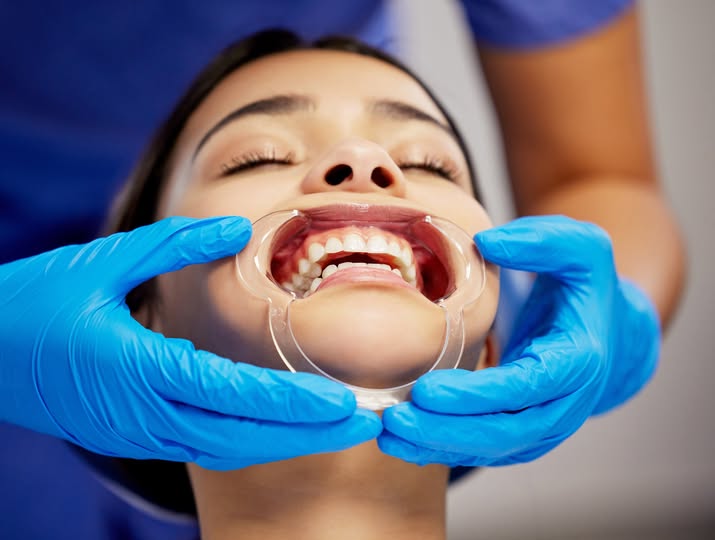
Teeth Grinding: Causes, Effects, and How to Stop It
Teeth grinding, also known as bruxism, is a common condition that many people experience, often without realizing it. It can occur during the day or at night while you sleep and may be caused by stress, anxiety, sleep disorders, or misaligned teeth. While occasional grinding might not cause significant harm, frequent or severe bruxism can lead to serious dental and health issues over time.
The effects of teeth grinding go beyond just worn-down teeth. Chronic bruxism can cause jaw pain, headaches, earaches, tooth sensitivity, and even temporomandibular joint (TMJ) disorders. Over time, it can damage enamel, crack teeth, or lead to receding gums. Many people only discover they grind their teeth when their dentist notices signs of wear during a routine checkup or when they wake up with jaw stiffness and facial discomfort.
Fortunately, there are effective ways to prevent and manage teeth grinding. Reducing stress through relaxation techniques, improving sleep habits, and avoiding caffeine or alcohol before bedtime can help minimize grinding. For nighttime bruxism, a custom-made night guard can protect your teeth from damage by providing a comfortable barrier between your upper and lower teeth. In some cases, dental correction or bite adjustment may be recommended to improve alignment.
The professional and highly skilled team from Islington Dental Clinic is here to help with all your dental needs. From diagnosing the cause of your teeth grinding to creating personalized treatment plans, their expertise ensures lasting protection for your smile and jaw health.
The effects of teeth grinding go beyond just worn-down teeth. Chronic bruxism can cause jaw pain, headaches, earaches, tooth sensitivity, and even temporomandibular joint (TMJ) disorders. Over time, it can damage enamel, crack teeth, or lead to receding gums. Many people only discover they grind their teeth when their dentist notices signs of wear during a routine checkup or when they wake up with jaw stiffness and facial discomfort.
Fortunately, there are effective ways to prevent and manage teeth grinding. Reducing stress through relaxation techniques, improving sleep habits, and avoiding caffeine or alcohol before bedtime can help minimize grinding. For nighttime bruxism, a custom-made night guard can protect your teeth from damage by providing a comfortable barrier between your upper and lower teeth. In some cases, dental correction or bite adjustment may be recommended to improve alignment.
The professional and highly skilled team from Islington Dental Clinic is here to help with all your dental needs. From diagnosing the cause of your teeth grinding to creating personalized treatment plans, their expertise ensures lasting protection for your smile and jaw health.